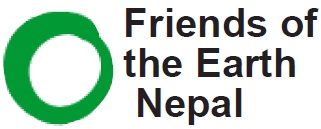The debate on linkages between trade, development and poverty reduction is not new. Trade policy potentially affects poverty through its effects on economic growth and income distribution. Yet, it is true that the effects of trade on income distribution have been more firmly established than its impact on growth. Given that poverty reduction is sensitive to income distribution, this is very significant.
Furthermore, a pro-poor growth policy has a greater impact on reducing poverty, than growth per se. Another dimension to the issues of linkages between trade, development and poverty reduction is the impact of protectionist policies on the poor. If a trade policy protecting import-competing sectors controlled by capital owners benefits the relatively well off, trade liberalisation is likely to redistribute income to the poor. Thus, there are various dimensions to the linkages between trade, development and poverty reduction. More so, both the theoretical and political economic dimensions are changing as well as unfolding (i.e. the emergence of new ones) in this new trade and investment regime. Some efforts are being made to look into the various dimensions of the issue, and making trade and investment liberalisation work for the poor. But, unfortunately, many such efforts do not attempt to look into the issue holistically, i.e. in both theoretical and political economic terms, supported by the civil society’s (Northern as well as Southern) understanding. Furthermore, issues relating to the effects of trade and investment liberalisation on the poor need to be looked into in a positive manner. Hence, an overarching purpose of all the activities is to find out the conditions necessary for mainstreaming international trade into a national development (poverty reduction) strategy (keeping in mind issues relating to policy coherence). Realising this vacuum and pursuant to its mandate of building consensus on issues affecting the livelihoods of the poor, CUTS Centre for International Trade, Economics & Environment (CUTS-CITEE) is implementing this project on issues of linkages between trade, development and poverty reduction over a period of four years (January 2005 to December 2008) in 15 select countries of Asia, Africa and Europe. Pro Public is the advocacy partner and SAWTEE the research partner to carry out the project in Nepal.
- To facilitate cross-fertilisation of experiences and lessons learnt on linkages between trade, development and poverty reduction in Nepal to develop appropriate policy responses.
- To help strengthen the ability of the country through the provision of policy support and other know-how and do-how on trade and development issues, and to defend its viewpoints and negotiating and advocacy positions on issues of concern, prevailing and emerging in the international trading system and their relationship with development and poverty reduction.
- To facilitate synergy between governments and civil society organisations (between and among the Northern and Southern stakeholders) to learn from each other and strengthen their collective perspectives and positions in the emerging debate on the linkages between trade, development and poverty reduction.
- To advocate development-oriented trade policies, based on learning from research and other activities, by taking into account the interests and priorities (needs and aspirations) of the poor and marginalized sections of the society and look into the aspects of policy coherence.
Project activities will include analyses of stakeholders’ perceptions on linkages between trade, development and poverty reduction, networking with partner organisations and other stakeholders, advocacy with policymakers and civil society organisations, dialogues involving producers and consumers, information dissemination amongst policymakers, civil society organisation and other stakeholders, outreach aimed at trade diplomats, parliamentarians, and developmental agencies (including donor agencies).


